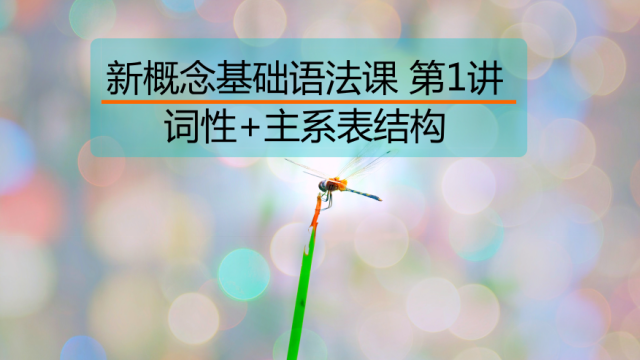疑问句和祈使句中怎么使用间接引语?
作者:沪江英语
2019-07-05 14:58

使用间接引语时时态必须改变。因此,时间的变化也是如此,这意味着在使用间接引语时,我们必须改变时间副词。
1. Adverbs of Time and Indirect Speech
1.时间副词与间接引语
As we noted above, the tense must change when using the indirect speech. Therefore the aspect of time changes too, this means we must change the adverbs of time when using indirect speech.
如上所述,使用间接引语时时态必须改变。因此,时间的变化也是如此,这意味着在使用间接引语时,我们必须改变时间副词。
Tim said, “I am going to the match today”
提姆说:“我今天要去看比赛。”
Tim said that he was going to the match that day
提姆说他那天要去看比赛。
They said, “we are going to Spain next year”
他们说:“我们明年去西班牙。”
They said that they were going to Spain in the following year.
他们说他们明年要去西班牙。
This may seem a bit confusing so to make it easier for you, I have made a list of the possible changes to the adverbs, from one time to another time. Now can be changed to then.
这种变化看起来似乎有点混乱,为了使你更容易理解这种变化,我已经列出了一个从一个时间转换为另一个时间,从现在转换为然后,类似这样的时间副词可以怎么转换的列表。
Today can be changed to yesterday/that day.
Today可以改变为yesterday/that day。
Tomorrow can be changed to today/the next day.
Tomorrow可以改变为today/the next day。
Yesterday can be changed to the previous day/Thursday.
Yesterday可以改变为the previous day/Thursday。
Next week/month/year can be changed to next week/month/year.
Next week/month/year可以改变为next week/month/year。
Last week/month/year can be changed to the previous week/month/year.
Last week/month/year可以改为the previous week/month/year。
2. Questions in Indirect Speech
2.间接引语中的问句
What happens to questions when we want to change it into indirect speech? How can we use indirect speech for an interrogative sentence? Let’s have a look and find out. In English there are two types of questions, yes or no questions and open ended questions:
当我们想把一个句子变成间接引语时,会出现什么问题?疑问句里怎么使用间接引语?让我们看一看并找出答案。英语中有两种类型的问题,只能用“是”或“否”回答的一般疑问句和开放式回答的特殊疑问句:
Yes or no question: Are you hungry?
一般疑问句:你饿了吗?
Response: Yes
回答:是的。
Open-ended question: What type of food do you like?
特殊疑问句:你喜欢什么类型的食物?
Response: I like Italian food.
回答:我喜欢意大利的食物。
You can’t respond to this question with a simple yes or no as it is not answering the question. An open-ended question requires more information.
你不能用简单的“是”或“不是”回答这个问题,因为这样就没有正面地回答这个问题。一个开放式的问题需要得到更多的信息。
3. Yes/No Questions in Indirect Speech
3.间接引语中的一般疑问句
How do yes/no questions look when changed into the indirect speech?
当被转换成间接引语时,一般疑问句该是什么样的?
She said, “Are you hungry?”
她说:“你饿了吗?“
She asked me if I was hungry.
她问我是否饿了。
Again, quotation marks are not required, the tense must be changed and the pronoun may change. Did you notice how when using the indirect speech in an interrogative sentence we don’t use ‘that’ we use ‘if’?
同样,不需要引号,时态必须改变,代词可能会改变。你注意到在疑问句中使用间接引语时,我们不使用“that”,我们使用“if”吗?
I said that I was happy.
我说我很高兴。
I asked her if she was happy.
我问她是否高兴。
Also note that the question mark is not required in the indirect interrogative sentence either.
同时,还要注意间接疑问句中不需要使用问号。
4. Open-Ended Questions in Indirect Speech
4.间接引语中的特殊疑问句
What about open-ended questions, the questions that require a more complex response?
那么特殊疑问句,这类需要更复杂回答的问题怎么变化呢?
Let’s look at an example of an open-ended question in indirect speech to see how they look.
让我们来看看间接引语中特殊疑问句的一个例子,看看它是怎么用的。
I said to my mum,“why are you smiling?”
我对妈妈说:“你为什么笑?“
I asked my mum why she was smiling.
我问妈妈为什么笑。
She asked him,“how old are you?”
她问他:“你多大了?”“
She asked him how old he was.
她问他多大年纪了。
What are the differences in these sentences? First of all the tense changes, in the first example the present continuous changes to the past continuous; are smiling – was smiling. The second example, the simple present changes to the simple past; you are – he was.
这些句子有什么不同?首先是时态上的变化,在第一个例子中,现在进行时转换为过去进行时;现在微笑着——当时微笑着。第二个例子,一般现在时转换为一般过去时;你是-他曾是。
The pronouns also change: you – she and you – he. ‘If’ isn’t required with open-ended questions but there is a change in the word order, did you see that?
代词也会改变:you变成she或he。特殊疑问句中不需要“if”这个连接词,但词序有变化,你看到了吗?
The indirect speech reverts the interrogative sentence structure back into the affirmative sentence structure. I will demonstrate this now with some examples:
间接引语变成疑问句结构时,一般会变回肯定句的结构。我将用一些例子展示这一点:
I said to my mum,“why are you smiling?”
我对妈妈说:“你为什么笑?“
I asked my mum why she was smiling. (I asked my mum why was she smiling.)
我问妈妈为什么笑。(我问我妈妈她为什么笑。)
She asked him,“how old are you?”
她问他:“你多大了?”“
She asked him how old he was. (She asked him how old was he.)
她问他多大年纪了。(她问他多大了。)
Tom said to Sam, “How are you?”
汤姆对山姆说:“你好吗?“
Tom asked Sam how he was. (Tom asked Sam how was he.)
汤姆问山姆近况如何。(汤姆问山姆近况如何。)
5. Imperative Sentences in Indirect Speech
5.间接引语中的祈使句
Now that we know how to adjust interrogative sentences, lets look at how we can adjust imperative sentences into indirect speech.
现在我们已经知道如何调整疑问句了,现在让我们看看如何把祈使句调整成间接引语。
Before we do that, can you recall what an imperative sentence is? What its function is? What it looks like?
在我们这样做之前,你能想起来什么是祈使句吗?它的功能是什么?它是什么样子的?
We use imperative sentences to give commands, such as telling your brother to visit your sister or asking for the menu in a restaurant. These sentences can end with a full stop or an exclamation mark.
我们用祈使句来发出命令,比如告诉你的哥哥去看你妹妹或者在餐馆里要菜单。这些句子可以以句号或感叹号结尾。
So how does an imperative sentence look in the indirect speech?
那么祈使句在间接引语中是怎样的呢?
She said to the waiter, “please give me a menu”
她对服务员说:“请给我一份菜单。”
She requested the waiter to give her a menu.
她请服务员给她一份菜单。
The teacher said to the students, “be quiet”
老师对学生们说:“安静点”。
The teacher ordered the students to be quiet.
老师命令学生们保持安静。
His mum said to him, “you need to study more”
他妈妈对他说:“你需要多读书。”
His mum advised him to study more.
他妈妈建议他多读书。
He said, “Let’s join the English language society in college.”
他说:“让我们加入大学英语语言协会。”
He suggested joining the English language society in college.
他提议加入大学英语语言协会。
Don’t forget about the negative request:
别忘记否定请求:
The teacher said, “Please don’t talk in class”
老师说:“请不要在课堂上讲话。”
The teacher said not the talk in class
老师说课堂上不要讲话。
The sign in the restaurant said, “No smoking”
餐馆的牌子上写着“禁止吸烟”。
The sign in the restaurant asked the customers not the smoke.
餐馆的牌子上要求顾客不能吸烟。
What about interrogative sentences that end with an exclamation mark?
那么用感叹号结尾的疑问句该怎么处理?
She said, “Yes! I got an A in my exam.”
她说:“是的!我考试得了A。”
She exclaimed with amazement that she had gotten an A in her exam.
她惊奇地大喊说她考试得了A。
They said, “Oh no! We lost our car keys.
他们说:“哦,不!我们的汽车钥匙丢了。
They exclaimed with disbelief that they had lost their car keys.
他们难以置信地惊呼他们的汽车钥匙丢了。
- 相关热点:
- 四级及格线











